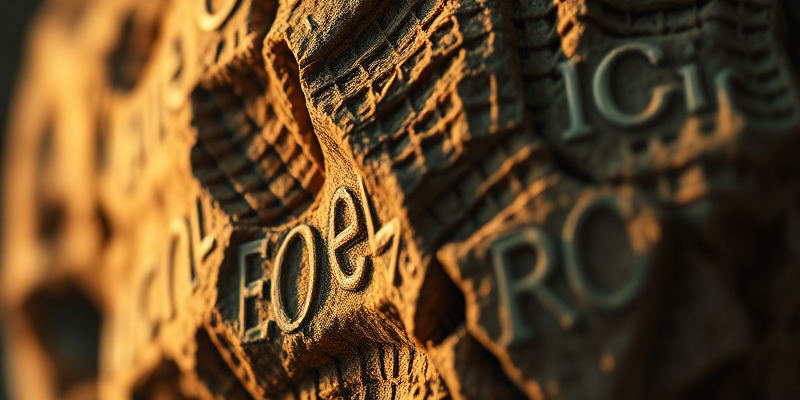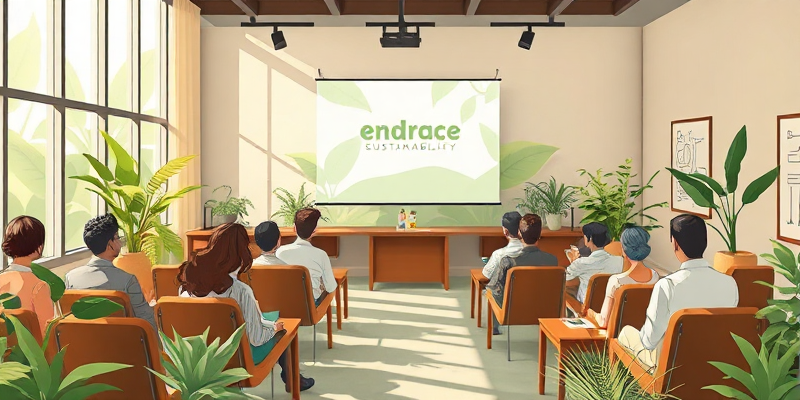Solutions B2B durables avec NatureBioEco: compostable & Agréé

Plastic Bans and Embrace Sustainability NatureBioEco Benefits

Picture this: You’re the procurement manager for a hotel chain, and you’ve just received word that your most popular coastal location will be subject to a plastic straw ban starting next quarter. You’re not alone in this predicament. Acros the globe, from California to the European Union, single-use plastic regulations are rapidly transforming the busines landscape.
Over 127 countries have now implemented some form of plastic bag legislation, and at least 27 have enacted specific bans on single-use plastics like straws, cutlery, and plates. For businesses operating acros multiple regions, keeping up with this patchwork of regulations can feel like a full-time job.
This is where sustainable alternatives like NatureBioEco’s compostable products enter the picture. Rather than scrambling to comply with each new plastic ban, forward-thinking businesses are proactively transitioning to compostable alternatives that meet global standards.
“We were constantly adapting to different regulations in each city where we operate,” shared one restaurant chain executive recently. “Switching to a single, compliant solution acros all locations simplified our operations tremendously.”
The question isn’t whether to embrace sustainability anymore—it’s how to do it effectively without compromising on quality, customer experience, or busines margins. Discover how sugarcane straws can dramatically reduce your busines’s carbon footprint while meeting these essential busines requirements.
NatureBioEco’s compostable alternatives offer several immediate benefits:
1. **Future-proof compliance**: Stay ahead of plastic bans and regulations with products that already meet or exceed international standards
2. **Authentic sustainability messaging**: Avoid greenwashing by offering genuinely eco-friendly alternatives
3. **Customer satisfaction**: Meet growing consumer demand for businesses that demonstrate environmental responsibility
4. **Operational simplicity**: Implement a single solution acros multiple locations regardles of local regulations
The transition to sustainable alternatives isn’t just about avoiding fines or complying with regulations—it’s about positioning your busines at the forefront of a global shift in how we think about disposable products.
Regulatory Compliance: Certifications for Embrace Sustainability NatureBioEco

Navigating the complex world of environmental certifications can be overwhelming, but it’s essential for businesses committed to genuine sustainability. When you partner with NatureBioEco, you’re gaining acces to products with the highest levels of certification and regulatory compliance.
According to a recent industry report, businesses using uncertified “eco-friendly” products face an average fine of $12,500 per violation in regions with strict greenwashing laws. This highlights why proper certification isn’t just nice to have—it’s a critical busines protection.
NatureBioEco’s compostable straws and packaging solutions come with two critical certifications:
**FDA Certification**: All products meet the FDA’s stringent requirements for food-contact materials, ensuring they’re safe for consumer use. This isn’t just about environmental impact—it’s about protecting your customers and your busines reputation.
**LFGB Certification**: This German standard is even more rigorous than FDA requirements in some aspects, providing additional assurance for businesses operating in European markets or those wanting to exceed minimum compliance standards.
“When we first started looking at sustainable alternatives, we were shocked by how many products claimed to be ‘eco-friendly’ without any real certification,” noted a cafe owner in Portland. “Having these certifications gives us confidence when making claims to our customers.”
Explore how FDA and LFGB certified sugarcane straws can benefit your busines without the compliance headaches of unverified alternatives.
Beyond regulatory compliance, these certifications bring several busines advantages:
1. **Marketing integrity**: Make sustainability claims with complete confidence
2. **Supply chain verification**: Ensure consistent quality and environmental standards
3. **Risk reduction**: Minimize liability related to product safety or environmental claims
4. **Customer trust**: Build deeper relationships with increasingly educated consumers
Remember, in today’s information-rich environment, customers and regulatory bodies can quickly identify misleading environmental claims. Properly certified products provide the documentation and verification you need to back up your sustainability messaging.
How Embrace Sustainability NatureBioEco Compares to Other Eco Alternatives

Not all sustainable alternatives are created equal. Understanding the nuances between different options can help you make choices that align with both your sustainability goals and busines requirements.
A comparative analysis by Environmental Impact Assessment found that properly managed compostable products can reduce waste-related emissions by up to 62% compared to conventional plastics, while some “biodegradable” alternatives achieve only a 12-15% reduction due to improper disposal infrastructure.
Learn how to select the right compostable straw material for your specific busines needs with our comprehensive guide that breaks down the options.
Here’s how NatureBioEco’s compostable options stack up against other common alternatives:
| Fonctionnalité | NatureBioEco Compostable | “Biodegradable” Plastics | Paper Alternatives | PLA (Corn-Based) |
|---|---|---|---|---|
| ——— | ————————– | ————————– | ——————- | —————— |
| Home Compostability | ✓ Completely breaks down | ✗ Often requires industrial facilities | ✓ Composts well | ✗ Requires industrial facilities |
| Water Resistance | ✓ 2+ hours | ✓ Excellent | ✗ Poor without coatings | ✓ Good |
| Résistance à la chaleur | ✓ Up to 200°F | ✓ Varies | ✓ Limited | ✗ Melts at high temperatures |
| Expérience utilisateur | ✓ Similar to plastic | ✓ Similar to plastic | ✗ Can become soggy | ✓ Similar to plastic |
| Raw Material Sustainability | ✓ Agricultural byproduct | ✗ Often petroleum-based | ✓ Renewable but resource-intensive | ✓ Food crop (raises ethical questions) |
| End-of-life Reality | ✓ Truly compostable | ✗ Often ends in landfill | ✓ Recyclable (if not coated) | ✗ Requires specific facilities |
| Certifications | ✓ FDA, LFGB | ✗ Varies widely | ✗ Varies widely | ✓ Varies by manufacturer |
“We tried paper straws first because they seemed like the obvious choice,” explained a bubble tea shop owner. “But customer complaints about soggy straws affecting the experience were hurting our busines. Switching to NatureBioEco’s compostable straws gave us the durability we needed while maintaining our sustainability commitment.”
Le UNEP’s comprehensive report on plastic alternatives reinforces the importance of considering the entire lifecycle of products, not just their end-of-life disposal. This holistic view is what makes NatureBioEco’s solutions particularly compelling for businesses committed to genuine sustainability.
Top Busines Benefits of Switching to Embrace Sustainability NatureBioEco

The decision to transition to sustainable products isn’t just environmentally responsible—it can deliver significant busines advantages that impact your bottom line and brand perception.
A 2023 consumer survey revealed that 72% of customers are willing to pay a premium of up to 10% for businesses demonstrating genuine sustainability practices, with sustainable packaging ranked as the most visible and influential factor in purchasing decisions.
Discover how your cafe or restaurant can effectively market its commitment to sustainability through compostable solutions, turning environmental responsibility into a competitive advantage.
Here are the tangible busines benefits of making the switch:
**Enhanced Brand Perception**
In today’s market, genuine sustainability isn’t just nice to have—it’s increasingly expected. NatureBioEco’s certified compostable products give you a credible sustainability story to share with your increasingly eco-conscious customers. Unlike vague “green” claims, compostable products provide a concrete demonstration of your environmental commitment.
**Regulatory Future-Proofing**
As plastic bans continue to expand worldwide, businesses using NatureBioEco’s products won’t need to scramble to find alternatives or manage different products in different markets. This regulatory future-proofing can save significant operational headaches and costs associated with last-minute compliance.
**Marketing Differentiation**
In competitive markets like hospitality and food service, environmental responsibility can be a powerful differentiator. Businesses using NatureBioEco products often feature this commitment in their marketing materials, social media, and in-store signage to attract environmentally conscious consumers.
**Alignment with Corporate Sustainability Goals**
For larger organizations with formal sustainability commitments, transitioning to compostable alternatives helps achieve measurable progres toward stated environmental goals, which can satisfy stakeholders, investors, and internal sustainability teams.
**Staff Pride and Retention**
Never underestimate the impact of sustainability on your own team. Employees increasingly want to work for businesses that align with their values. Making visible commitments to environmental responsibility can boost morale and help retain talent in competitive labor markets.
Environmental Impact: Why Embrace Sustainability NatureBioEco Wins

The environmental benefits of choosing NatureBioEco’s compostable products extend far beyond simply avoiding plastic. Let’s examine the full ecological impact of making this switch.
Research from the Biodegradable Products Institute shows that properly composted bioproducts can reduce greenhouse gas emissions by up to 80% compared to conventional plastics that end up in landfills, where they release methane as they break down over centuries.
Explore how businesses are preparing for a sustainable future with compostable straws by 2025 as part of comprehensive sustainability strategies.
**Reduced Carbon Footprint**
NatureBioEco’s sugarcane-based products utilize agricultural byproducts that have already absorbed carbon during their growth cycle. Compared to petroleum-based plastics, which release previously sequestered carbon, this represents a significant reduction in carbon footprint.
**Zero Microplastic Contribution**
Unlike conventional plastics that break down into harmful microplastics, properly composted NatureBioEco products leave no microplastic residue. This is increasingly important as awarenes grows about microplastics in our food chain and water systems.
**Circular Economy Participation**
When composted, NatureBioEco products return valuable nutrients to soil, completing a natural cycle. This circular approach contrasts sharply with the linear “take-make-dispose” model of conventional plastics.
**Reduced Resource Extraction**
By utilizing agricultural byproducts instead of virgin petroleum, NatureBioEco’s products help reduce the environmental impact of resource extraction, including the water pollution, habitat destruction, and emissions associated with oil drilling.
**Waste Stream Diversion**
For businesses in areas with commercial composting facilities, NatureBioEco products can be diverted from landfills entirely, helping reduce waste management costs and extending the lifespan of existing landfill facilities.
Case Study: Embrace Sustainability NatureBioEco Succes in Action

The Oceanview Hotel Group operates 12 properties acros coastal communities in North America. When plastic straw bans began affecting their California locations in 2019, they initially responded with a patchwork approach—paper straws in California, traditional plastic in other locations, and a “straws upon request” policy to reduce overall usage.
Learn how forward-thinking businesses are implementing sustainable B2B solutions that keep them ahead of regulatory changes while enhancing their brand.
The results were les than ideal:
- Customer complaints about paper straws increased by 27%
- Staff reported confusion about different policies acros locations
- Inventory management became more complex with multiple products
- Their sustainability messaging felt inconsistent and insincere
In early 2022, Oceanview partnered with NatureBioEco to implement a standardized solution acros all properties. They switched to custom-branded compostable straws and invested in IoT-enabled straw dispensers that reduced waste while providing usage analytics.
Within six months, they experienced:
- 42% reduction in overall straw usage through smarter dispensing
- 94% decrease in customer complaints about straw quality
- Simplified inventory management with a single SKU
- $27,000 in avoided fines and compliance costs
- Featured in three travel publications for their sustainability initiative
“The unexpected benefit was how much our staff appreciated the change,” noted their Director of Operations. “They went from apologizing for soggy paper straws to proudly explaining our comprehensive sustainability approach, which includes our NatureBioEco partnership.”
This case illustrates how a holistic approach to sustainability—rather than simply reacting to regulations—can deliver multiple busines benefits while advancing genuine environmental goals.
Questions fréquemment posées
- How cost-competitive are NatureBioEco’s compostable products compared to conventional plastics?
- While the unit cost is typically 15-30% higher than conventional plastics, businesses often find the total cost of ownership comparable or even favorable when considering factors like bulk purchasing discounts, avoided regulatory fines, reduced need for multiple inventory items acros different jurisdictions, and the marketing value of genuine sustainability. Many businesses also report being able to command slightly higher prices or increased customer loyalty that offsets the difference.
- What is the shelf life of NatureBioEco compostable products?
- When stored in proper conditions (cool, dry environment away from direct sunlight), NatureBioEco products maintain their quality for up to 24 months. This is comparable to conventional plastic products and allows for efficient inventory management without concerns about degradation during normal storage periods.
- Can NatureBioEco products be customized with our branding?
- Absolutely! We offer custom branding options including color choices, printed logos, and specialized packaging for wholesale orders. Many B2B customers find that branded compostable products serve as excellent talking points that reinforce their sustainability commitment. Minimum order quantities for customization start at reasonable volumes designed for mid-sized businesses.
- How quickly do these products actually compost?
- In commercial composting facilities, NatureBioEco products break down in 90-180 days. In home composting environments, they typically decompose within 180-240 days, depending on specific composting conditions. This is significantly faster than “biodegradable” plastics, which often require specific industrial conditions and can take years in les ideal environments.
- Do you offer wholesale pricing and bulk shipping for distributors?
- Yes, we have dedicated B2B pricing tiers designed specifically for distributors, hotel groups, restaurant chains, and other wholesale buyers. Our logistics team specializes in efficient bulk shipping to multiple locations or centralized distribution centers, with options for regular scheduled deliveries to maintain optimal inventory levels.
- How do these straws perform with hot beverages or thick drinks like smoothies?
- NatureBioEco’s compostable straws maintain structural integrity in hot beverages up to 200°F for over two hours—significantly outperforming paper alternatives. For thick beverages like smoothies and bubble tea, we offer wider-diameter options specifically designed to handle viscous liquids while maintaining their compostable properties.
- What certifications can you provide for our sustainability reporting?
- We provide comprehensive documentation including FDA and LFGB certifications, compostability verification, carbon footprint analyses, and supply chain transparency reports. Many of our B2B customers incorporate this documentation into their annual sustainability reporting and ESG disclosures.







